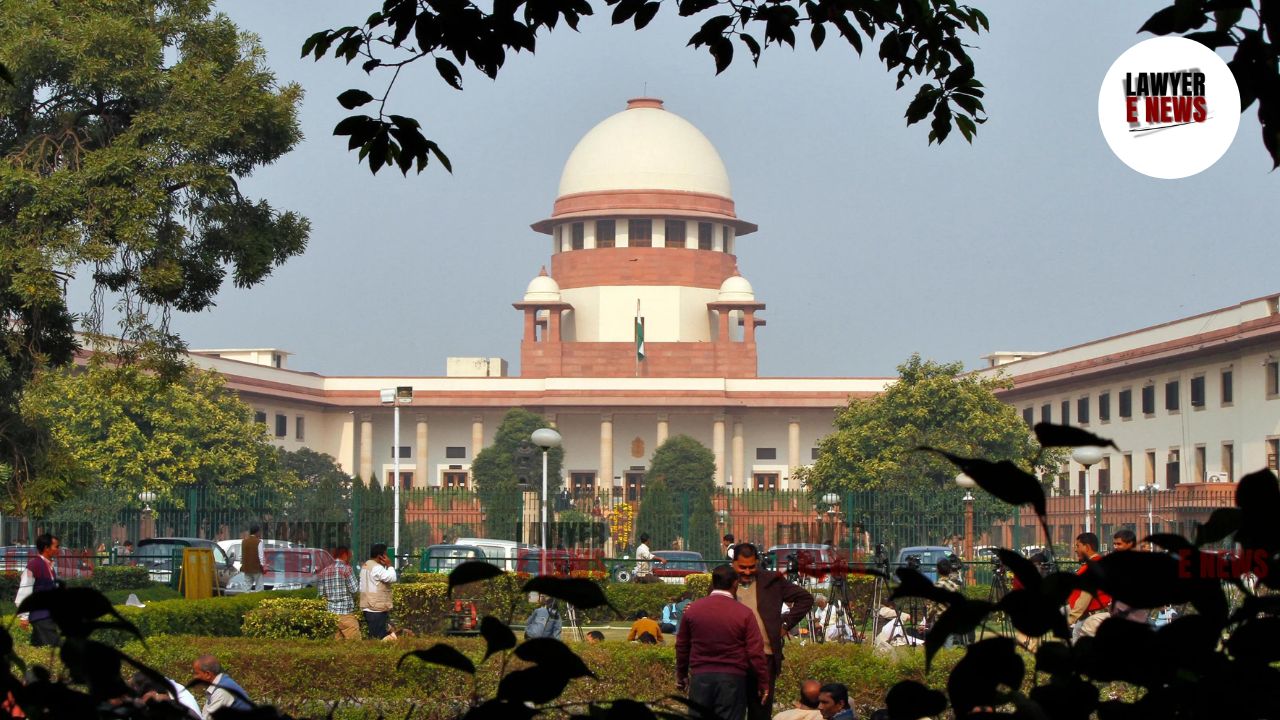-
by Admin
15 February 2026 5:35 AM



Employees Must Follow Transfer Orders During Litigation or Forfeit Pay for Absence, Rules Supreme Court. Supreme Court of India delivered a significant judgment in The Tamil Nadu Agricultural University & Anr. vs. R. Agila & Ors., where it ruled against employees who failed to join their new place of posting after being transferred, despite challenging the transfer orders in court. The Court upheld the principle that government employees must comply with transfer orders and cannot demand salary for the period they remain absent during ongoing legal disputes unless explicitly permitted by interim orders.
The Tamil Nadu Agricultural University transferred six employees to new locations. Instead of complying with the transfer orders, the employees challenged the orders in court and did not report to their new postings. A Single Judge of the Madras High Court quashed the transfer orders in March 2021, and the Division Bench later dismissed the University’s appeals in June 2022. The University then appealed to the Supreme Court.
During the pendency of the case in the Supreme Court, the employees finally joined their new postings following an interim order in February 2023. However, the employees sought salary and regularization for the period during which they had not complied with the transfer orders. The University opposed this, arguing that the employees had remained unauthorizedly absent during this period.
Whether employees who fail to comply with transfer orders during legal challenges are entitled to salary for the period of unauthorized absence.
Whether the transfer orders should be reinstated and the absence period regularized.
The Court reiterated the established legal principle that transfer is an exigency of service, inherent to government employment. It emphasized that employees must comply with transfer orders unless they have secured a stay order. The Court observed that non-compliance with a transfer order, while challenging it legally, undermines administrative efficiency and burdens the public exchequer. It cited previous rulings, including Tushar D. Bhatt v. State of Gujarat and Gujarat Electricity Board v. Atmaram Poshani, affirming that employees cannot remain absent from service on the mere ground of challenging a transfer order.
The Court held that employees who remained absent without a stay order from the court are not entitled to salary for the period of unauthorized absence. However, it directed that the service periods of the employees be treated as continuous, so they could receive other service benefits, but no salary would be paid for the period they were absent without permission.
The Court distinguished between employees who had interim orders in their favor and those who did not. For employees without interim orders (Respondent Nos. 4 and 7), the Court ruled they were not entitled to salary for the period they failed to join their new postings, but their service continuity would be maintained.
The Supreme Court quashed the orders of the Single Judge and the Division Bench, reinstating the transfer orders. It directed the University to clear any outstanding dues for the employees who had interim orders in their favor, while withholding salary for the period of unauthorized absence for Respondent Nos. 4 and 7. The Court emphasized that while employees could continue to challenge transfer orders, they must comply with such orders during legal proceedings unless there is a court order granting them relief.
The Supreme Court's decision reinforced the obligation of government employees to comply with transfer orders while pursuing legal remedies. The ruling clarified that employees cannot remain absent from their new postings without authorization and still expect full salary for the disputed period. The appeals were allowed, and the University was directed to clear dues with conditions for certain employees.
Date of Decision: August 20, 2024
The Tamil Nadu Agricultural University & Anr. vs. R. Agila & Ors.
